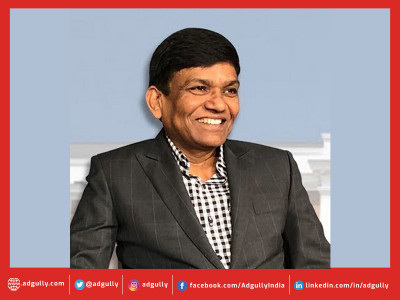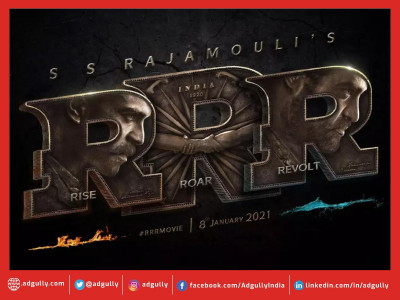PEN Studio’s Jayantilal Gada on his eventful journey as producer
Starting from a small part in his father’s grocery store, Jayantilal Gada today has grown to one of the leading film producers and distributors. Gada had sharp entrepreneurial instincts from a young age, which led him to capitalise on the growing craze for music and film audio and video cassettes in the 80’s. He grew the business by lending these cassettes from his Popular Video Cassette Library, which he later built into his production company, Popular Entertainment Network India, or PEN India, as it is popularly known.
In the initial days, Gada acquired the rights of Bollywood films and supplied them to Doordarshan. PEN India later ventured into film production and had co-produced the well-known film ‘Kahaani’, starring Vidya Balan. Alia Bhatt-starrer ‘Gangubai Kathiawadi’ is the latest production venture from Gada’s PEN India stable.
In this interview with Adgully, Jayantilal Gada dwells on his initial days, the need for keeping a certain time period before releasing a movie on digital platform, etc. Excerpts:
You started with a video library called Popular Video Cassette Co in 1987 in your father’s grocery store in Kurla, Mumbai. That reminds us of Netflix, which also had a similar beginning like this. Could you take us through your journey in this industry?
My journey started with a small portion of a grocery store, which I converted into a music library. We started climbing the ladders of growth. The music library soon became a wholesale shop. Then it covered the whole Mumbai territory, gradually covering the whole of India. We started purchasing copyrights of videos. During that era, Doordarshan was the only major channel. We came up with an idea to acquire the rights of Bollywood films and supply them to Doordarshan. Earlier, Doordarshan used to pay royalties for movies, but things changed after that. We now have to buy the slots for movies along with advertising costs.
In 1992, Zee was launched, and everything suddenly changed. After that, many channels joined the race. Zee was the pioneer. We tied up with them for movie slots, sold outright, and shared revenue. We started by creating new ideas and matching them with technology. Over these 30-35 years of my journey, we have reached the point where we started working with big filmmakers and directors.
You have also associated with Rajamouli’s much awaited film ‘RRR’...
When we tied up with ‘RRR’, they provided us with a platform and opportunity to release their movie through digital, theatre, and satellite; we connected through different platforms and set up a window of 90 days after which they could release the movie on OTT. Every director wants to increase their box office collections compared to their last collection.
So, are you against releasing movies on OTT within a gap of a month after releasing it on the big screen? Do you think exhibitors and producers should have an understanding for the benefit of the industry in the long run?
During the pandemic, digital platforms started releasing movies one by one. Two new things happened: the first is that for the first time, a movie could be launched on OTT after 70-90 days of theatrical release. After a window of 60 days post-theatrical release, it will be out on satellite. The second thing is that Netflix will soon be adding the Hindi language. And four regional languages will be added by ZEE5. Netflix will also be adding four new languages, including Portuguese. Within 90 days, a movie will be released in 10 languages in five theaters, and because of this, there is a huge gap in windows.
How can OTT and theatres co-exist? What can the ideal situation be?
In the 90’s, we had to get permission from the association for five years before releasing the movie. There was a rule that we had to get an NOC from the association if we had to release the film before the deadline.
Nowadays, the Multiplex Association of India is applying the rule of 60 days because, in the last five years, a movie was rarely left in theatres for 60 days. The association has 60 days’ rule for any theatre movie to go for OTT release. After COVID, they allowed us a window of 30 days for OTT, but I feel 60 days is the proper window because the theatre should not be closed and movies should be released there as well.
We hope OTTs will agree to a window of 60 days, but except for ‘RRR’, we don’t think OTT will wait.
When a new technology is introduced, people get scared. When video cassettes were introduced theatres felt threatened. But nothing happened as theatres are still running. But, if we look at it in another way, it had helped us grow and face the challenge, which had resulted in our better performance because we used to work hard to get it done better on the very next attempt.
Now there is a new period and our creative people are facing a challenge. They have to make a big film to bring people to the theatres.
The theatre market will grow even more, and people will make big films, which means the business will expand. On the other hand, digital platforms will make web series and show our movies just to boost their platform; they will earn money from web series and satellite series. Those who make theatrical films will be well-known directors and producers, who will make big films and grow their brand and customer base.
Recently we did a series on piracy. Theatrical piracy still exists. What can be done to stem the tide of piracy?
Piracy has always been there – be it video, satellite, or theatre. When you release a big film, there are chances of piracy because it has gone through the hands of different people before release. However, a moviegoer who loves to watch movies in the theatre will go there because there is a difference between pirated movies and theatre movies, even in quality. It is a human tendency: if a customer likes a movie, he will watch it in the theatre three or four times, and then on DVD. From 2004 to 2016, I was exclusively handling Hindi films for Zee, and we negotiated for a 5-10 or 16-year period to telecast our movie, despite the risk of piracy, because we needed a movie for a longer period. Even after one year, there will still be pirated movies on the market, but we will still negotiate so that we can telecast them for a longer period. Now, if we look, there are high chances of pirated movies. Movies can be shared worldwide. The government has to stop this. But even if government officials from different countries try to stop this, it won’t help.
We do not focus on piracy because there are different states in India, and even if we try to stop, it won’t be possible. PEN India is a small company, which we handle privately.
What are the future plans of PEN Studios?
Every year we work on a small scale in Telugu and Tamil. But we are taking more dubbing rights, which we initially started in 2004. Now it’s on a big scale. But in the local languages, we focus only on one or two movies, not more than that, as we are more into Hindi. But this year we are working on a Telugu film of Ravi Teja. We worked on the Tamil film ‘S3’ with Suriya, and once more, we are working on ‘Kumki 2’. But as I said before, we are more into Hindi as we are working on a pan-India basis.
We have not opened that division yet, but recently Utpal Das joined us as CEO. He was earlier with Viacom18. He is setting up the base for this division, which I think, will start by next April. We are trying to market web series, etc. Whatever we generate is for all three divisions – satellite, theatre, and OTT, not just for OTT. We are fortunate to be working with three of the country’s top directors this year: Rajamouli for ‘RRR’, Sanjay Leela Bhansali for ‘Gangubai Kathiawadi’, and Shankar for Ranveer Singh’s film.
We are planning eight movies in 2022. We aim to give 100% service to those who are associated with us. If we do more movies, there is a chance that our brand will be diluted and we will not be able to provide proper service to everyone.
In terms of OTT, we have a 90-day window only for ‘RRR’. We did not have any discussions for other movies, as I felt that because of Rajamouli, the platforms agreed to a 90-day window.









Share
Facebook
YouTube
Tweet
Twitter
LinkedIn